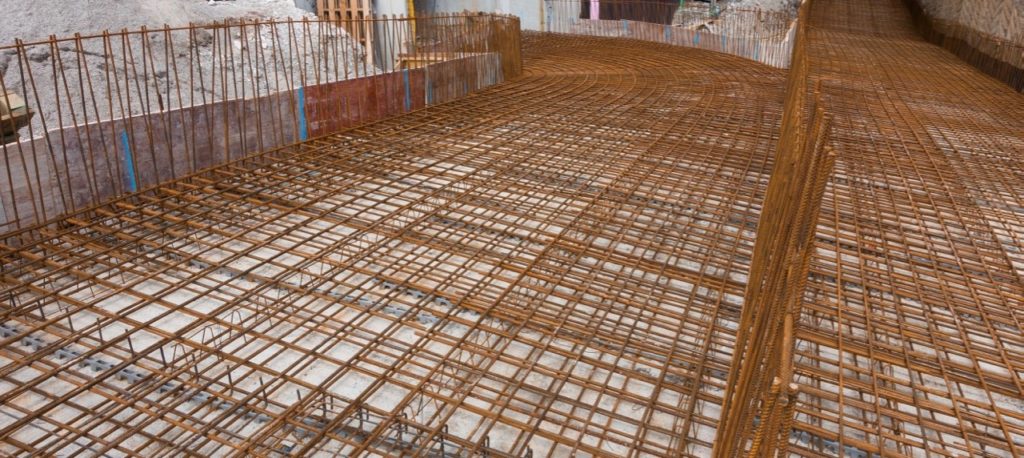What You Should Know About Reinforced Concrete

When you hire experienced concrete contractors to work on your next project, they should talk you through the process and help arrive at the perfect type of concrete to use. Much of the time, this means making use of reinforced concrete, although not always. In this article, we’ll briefly go over the basics of reinforced concrete, including different types and its uses.
What Is Reinforced Concrete?
Simply put, reinforced concrete is any form of concrete that includes structural elements embedded within it to add extra strength and stability. This most commonly takes the form of steel rebar, but numerous other materials such as wire mesh or synthetic fiber weaves can also be utilized.
This is a relatively new invention. Concrete has been used going back to at least the time of the Romans, but reinforced concrete didn’t come into use until the mid-19th Century.
What Are the Benefits of Reinforced Concrete?
The use of embedded elements is extremely successful at reducing various stresses on the concrete. For example:
1. Less thermal stress
Concrete is typically vulnerable to changes in temperature, particularly fast shifts between freezing and non-freezing temperatures. While this is always an issue with concrete to some extent, the reinforcements will help reduce the expansion and contraction that come with rapid temperature changes.
2. Better distribution of stresses
Because concrete bonds directly to the material reinforcing it, this truly makes the reinforcement part of the material. Stresses on one part of the concrete structure will be spread throughout the reinforcement, adding considerable extra strength and resistance to the concrete. An upright concrete structure is less likely to crack due to shifts back and forth, for example. Likewise, it gains substantial extra compressive strength as well.
3. Long-lasting protection
One interesting side effect of the process that bonds concrete to steel is the creation of a thin waterproof layer around the steel. This makes it almost entirely corrosion-resistant, even if water penetrates the concrete, adding to its longevity.
Not all types of reinforced concrete have this corrosion resistance, however. It’s important to talk with your concrete contractor if you believe the concrete will be exposed to high levels of moisture.
Donald Rushing Construction Knows Concrete
Since 1987, we’ve been a premier supplier of concrete and contracting services across Georgia and the Carolina Lowcountry. We have a long record of success in industrial, commercial, and municipal work. Contact us directly to discuss your next project.



